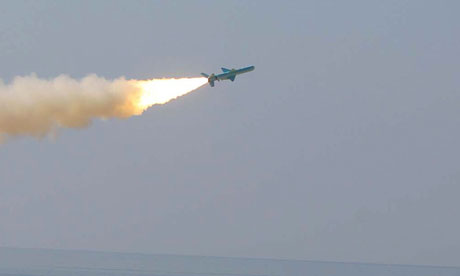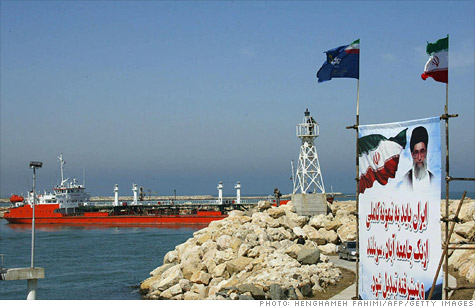Chinese Premier: Beijing Against Iran Closing Strait of Hormuz
Posted Thursday, January 19th, 2012 at 5:30 am
Chinese Premier Wen Jiabao says Beijing is opposed to any “extreme action” by Iran to shut off the Strait of Hormuz.
Wen said it would be against the interest of the global community if Iran followed through on its threat to block the waterway, which is a key shipping lane for global oil supplies. He made his comments Wednesday at a news conference in Doha, Qatar.
Tehran has threatened to close the strait in response to U.S. sanctions aimed at getting it to abandon its disputed nuclear program.
China has supported United Nations sanctions on Iran, but has so far criticized the much tougher U.S. measures, saying they will lead to heightened tensions and could drive up global oil prices.
Wen said that China “firmly opposes” Iran producing a nuclear weapon. But he says the issue should be resolved through peaceful means, saying the so-called P-five-plus-one talks are one way to do so.
The negotiations between the five permanent members of the U.N. Security Council – the United States, Britain, France, Russia and China – plus Germany last took place a year ago. Iran and the United States have both hinted that the talks could soon resume, although no date has been set.
The recently enacted U.S. sanctions impose financial penalties against foreign banks that do business with Iran’s central bank, which is responsible for most of its oil deals.
Wen again on Wednesday defended his country’s purchase of Iranian oil, saying it is “normal” and does not worry him. Earlier this month, China rejected a U.S. request to cut back on its consumption of Iranian oil. China is Iran’s top oil customer.




 Reply With Quote
Reply With Quote


 Russia Warns of Iran Attack 'Catastrophe'
Russia Warns of Iran Attack 'Catastrophe'

 Iran test-fires a missile in the Sea of Oman. US hardliners are talking up military action to force regime change in Iran. Photograph: Hamed Jafarnejad/AP
Iran test-fires a missile in the Sea of Oman. US hardliners are talking up military action to force regime change in Iran. Photograph: Hamed Jafarnejad/AP


 Sanctions will ban the import of Iranian crude to Europe and also target Iran's central bank.
Sanctions will ban the import of Iranian crude to Europe and also target Iran's central bank.












 TEHRAN – Ali Baqeri, the deputy secretary of Iran’s Supreme National Security Council, and Russian Foreign Minister Sergei Lavrov discussed various aspects of the Russian proposal for a “step-by-step” plan toward Iran’s nuclear program during a meeting in Moscow on January 19.
TEHRAN – Ali Baqeri, the deputy secretary of Iran’s Supreme National Security Council, and Russian Foreign Minister Sergei Lavrov discussed various aspects of the Russian proposal for a “step-by-step” plan toward Iran’s nuclear program during a meeting in Moscow on January 19. 

Bookmarks